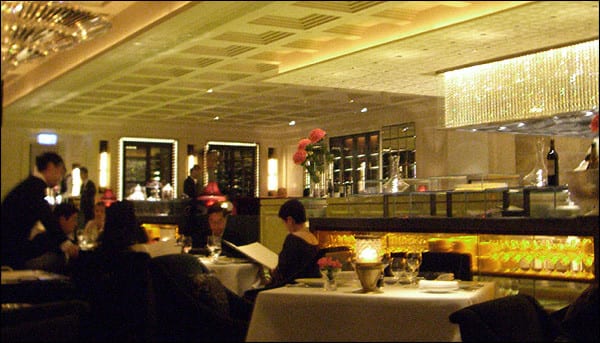
The technology industry lauded news of photo sharing service Foodspotting being acquired by OpenTable for $10 million. The acquisition may hint at a burgeoning market for restaurant ticketing systems. But what does the Food & Hospitality industry think?
The original social network for foodies, Foodspotting, was recently acquired by Internet reservation system OpenTable. Foodspotting is popular with gastronauts by being the first photo sharing service dedicated to food photography. Foodspottting served foodies with unique features tailored to food photography, unlike the generic photo sharing services. Over time, Foodspotting grew a small but loyal fan base that eventually got the attention of OpenTable.
Why would OpenTable want to acquire a photo sharing service? As part of OpenTable's product offering, crowd-sourced FoodSpotting photos become a kind of recommendation engine for consumers and a lead generator for restaurants. Brian Chen of the New York Times explains:
Matt Roberts, chief executive of OpenTable, said that when you book a reservation at a restaurant, you may receive a confirmation e-mail that includes a menu, accompanied with photos of entrees that people recommend eating there.
“If you can have a rich menu with images instead of just words and recommendations of dishes you may like, it really just broadens the experience and helps diners get the most of their evening out,” Mr. Roberts said in an interview.
The purchase of Foodspotting is one of OpenTable’s first steps to use customer data to make dining more personalized. Mr. Roberts imagined a waiter carrying around a tablet loaded with the OpenTable app, which would display a patron’s dining history and show his food preferences or cocktail of choice.
If Foodspotting is evolving from its original purpose, will OpenTable do the same? Some chefs and food industry professionals have suggested that OpenTable will evolve into a form of restaurant ticketing system.
When the sommelier at a Michael Mina restaurant asked if ticket systems are a viable option for restaurants, several food industry professionals suggested OpenTable already serves that function.
Open Table is sort of halfway there, if they're smart they'll get with the program and develop a system for dining ticket sales. The real question is not 'Should restaurants sell tickets?' but ' From which restaurants would people want to buy tickets?'
"Only if they have a strong enough system in place. Next is so popular- they probably should use something like Ticketmaster or OpenTable if they want to remain hands off."
Christine Cikowski, chef of the Sunday Supper Club
"Why bother with ticket system when we have reservation system like OpenTable, seriously?"
Marianne Sundquist, owner Mess Hall & Co.
"Since the system is so impersonal, you might as well just use Ticketmaster and let people order tickets like its a concert."
Carrie Nahabedian, executive Chef/Owner NAHA
Not everyone is enamored with the idea of OpenTable functioning as a restaurant ticketing system. In fact, a misnomer may be forming withing the food industry as web based dinner reservations and small, pre-paid deposits are described as a"restaurant ticketing system."
A handful of services, like OpenTable and more recently SeatMe, help restaurants take reservations but that is very different than the pre-sale tickets sold by Next in Chicago. OpenTable and SeatMe are viable substitute for telephone reservations, yes, but are they ticketing systems like the ones used for rock concerts? No.
ThunderTix offers restaurants nightly deposits. By selling tickets in advance, restaurant owners would have their funds available the next business day - not just a single digit percentage deposit.
The discussion around restaurants adopting a ticketing system is currently a controversial one, and it warrants further discussion soon. Until then, what do you think? Can restaurants use current web reservation systems as ticketing systems "as is"? Let us know in the comments below.